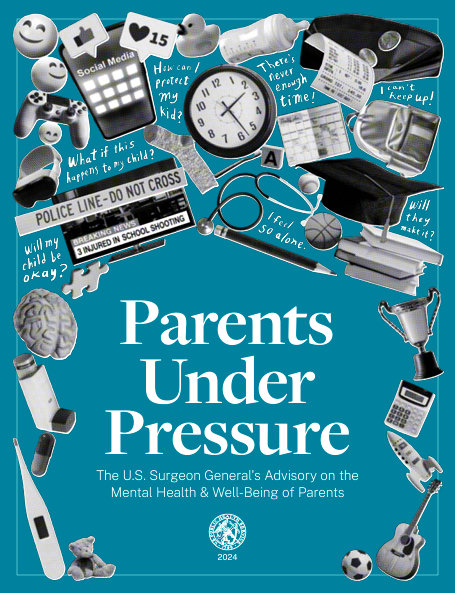For the past two years, the Advocates who serve on ACSA’s Member Assistance and Legal Support Team under the direction of Margarita Cuizon-Armelino, have been in contact with many of our administrators who have had to endure extremely hostile behavior from parents and members of the community. Throughout California, there have been many school board meetings that have been convened for the purpose of discussing vaccine and mask mandates due to the pandemic that have evolved into chaotic shouting matches, and some have escalated to threats of violence. While incivility in public meetings is disturbing enough, many site level principals and assistant principals deal with angry parents and community members every day.
Several members of ACSA’s team reviewed Board Adopted Civility Policies from seven California school districts. Each of them had similar language. They each were clear that the policies were not adopted to suppress parents or community members from expressing their concerns. They were adopted, however, to maintain safety for students and staff so that the educational program would not be interrupted. As a site level administrator, we suggest you review the civility policy in your district. Each of these adopted policies also list the California Education and Penal Codes related to this topic. For your convenience and easy reference we have listed several of these codes at the end of this article. As a site level administrator, also consider the following suggestions.
1. When confronted with an angry parent or community member, greet them with a smile and make certain to maintain eye contact.
- Move them into your office as quickly as possible, so that, hopefully, the individual feels less of a need to show off in front of others.
- Consider providing training for your office staff members, so that they can cope for a short period of time in case you are not available immediately. They can be very helpful in terms of calming people down.
- If possible, do not have students present for the meeting.
2. The most critical aspect to dealing with an angry parent or community member is to listen. Active listening lets the person with whom you are speaking know that you have heard what they in fact have said. Being an active listener can also help to reduce the tension in the meeting and can lead to possibly reaching solutions, even if it’s only to agree to disagree.
- Consider taking notes even if you are well aware of the situation.
- Take every opportunity to repeat whatever is being said by the parent or community member. Repeating back core points made by an individual reassures the individual that their message has indeed been heard.
3. Put yourself in the parent’s shoes.
- Let the individual know that you want to be of help, but it is absolutely necessary that everyone conduct themselves in a civil/calm manner.
- As a general rule, remind the parent or community member that there needs to be a focus on the issue. You may need to guide the parent or community member to stay focused on the issue. As an example, you might say: “I’m feeling that we’re straying from your original concern, and I want to make sure that we can reach some understanding and hopefully find a solution.”
4. If the parent or community member is abusive or uses profanity, let the individual know that you are there to listen and be of assistance, but, if they can’t calm down, you will have to end the meeting and have the conversation at another time. Don’t forget to review your district’s board adopted Civility Policy. There most likely is language specifically addressing this issue.
- Sometimes, it helps to take a quick break when discussions heat up. A technique that often works is to offer the individual something to drink. Leave them alone for a few minutes, and let them know that you will be back shortly.
- If you or your family is personally threatened either verbally or in writing with statements that we see on the local and national news almost nightly at public meetings such as: “I know where you live,” it’s time to contact the appropriate law enforcement agency in your community and file a police report. It also may be time to request a restraining order to not allow this parent or community member on the campus or near your home. Threats like these are not to be taken lightly. We suggest notifying the appropriate district personnel to keep them in the loop and hopefully get support. California’s Penal Code Section 71 refers to threating public officers, public employees and school officials.
5. When the parent or community member is calm, let them vent completely before offering solutions to the situation.
- Make it a point to not get defensive at this point in the meeting. This is the time when active listening can be helpful.
- If appropriate, ask questions. For example, you may want to ask the individual what it is that they actually want. Believe it or not, they may not even know.
- If their request is way out of line, you may want to offer alternatives for them to consider.
6. If you need time to gain input from staff members or if you simply need time to consider possible solutions, thank the individual for coming in to express their concerns, and that you will get back to them within a certain time frame. (A good rule of thumb is 24 hours.)
- Contact the necessary individuals to gain input.
- Consider calling a colleague who may have greater experience in areas like the one that you are facing.
- Consider contacting the appropriate member of the district office to keep that individual informed.
7. Make a list of possible solutions and look at the ramifications of each option.
- Pick the best course of action for this particular situation. You may be forced to pick the “best of all evils.” While we all want a win/win solution, that may not be possible.
8. Once you have reached a decision on a course of action, schedule the meeting with the parent or community member.
- If you believe that the parent may go “ballistic,” have someone on standby just in case you need assistance. For example, it might be possible to have the district resource officer simply drop by for some reason. If you are in a small district and don’t have a resource officer, contact your local police department or Sheriff’s office. It may also be helpful to have another person in the room during the conversation. This person can assist you in writing the necessary post meeting notes that should be completed after meetings of this nature.
- If the parent or community member doesn’t like your solution, end the meeting as amicably as possible. At this point, do not attempt to argue with the individual. It will just make matters worse.
- Consider notifying a member of the district office staff in case the individual goes directly to the district office.
- If you’re in a small school district and you are the “district office,” having a Civility Policy related to your particular school/district needs and current situation is important. The size of the district doesn’t isolate you from experiencing the same issues of dealing with irate parents and community members related to such issues as masking and immunizations.
As promised, here is a partial list of California Education and Penal Codes related to the topic of Civility: EC32210 (Willful Disturbance of School), EC32213 (Request to Leave School Grounds), EC44014 (Assault on Employees), EC44810 (Willful Interference with School), Penal Code 71 (Threats to School Officers), Penal Code 626.7 (Interference with Peaceful Conduct of School Activities).
Remember, as an ACSA member, you have access to the Member Assistance and Legal Support Team. This team is made of up seven very experienced administrators. Simply call 1-800-608-2272 or complete our online request form at www.acsa.org/legalsupport.





























